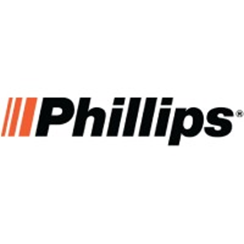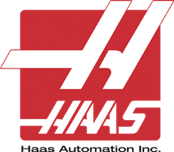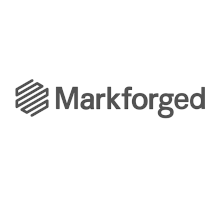
Charles R. Goulding and Harry Foxman put together their Industry 4.0 dream team.
The Ultimate Batting Lineup
In the ultimate Industry 4.0 batting lineup, Phillips Corporation, the already large multi-state Haas Tooling and Universal Robots distributor, has entered into a partnership with Markforged, the metal 3D printer manufacturer that is about to go public. The stats for each of these all-star players are as follows:

The Phillips Corporation has been a manufacturing solutions leader since its start in 1961. Headquartered in Hanover, Maryland, they have locations across the east coast. Phillips’ specialties include CNC machine tools, additive manufacturing, and manufacturing applications engineering. They have an extensive customer network in the commercial and federal government areas.

A division of Phillips, Haas Tooling builds machine tools specific to their customer’s needs. Haas builds various types of machines and tools but specializes in CNC machining centers. In recent years, Haas has improved their machines to connect to the internet and be able to monitor them via smartphone.

Universal Robots produces extremely flexible collaborative robots, or cobots. Founded in 2005, Universal Robots has evolved to creating lightweight, easy to reprogram robots. These light, easy-to-use cobots allow for medium and small-sized companies to implement them, growing Universal Robots. They are headquartered in Denmark and have regional offices in United States, Germany, France, Spain, Italy, Czech Republic, Poland, Turkey, China, India, Singapore, Japan, South Korea, Taiwan, and Mexico. Industries that Universal Robots supplies cobots to include automotive, education, electronics, food and beverage, medical, cosmetic, machining, and plastics.

Markforged is a worldwide additive manufacturing company with over 250 employees globally. Founded in 2013, they now have among the world’s largest online fleets of industrial 3D printers. The Digital Forge is an integrated metal and carbon fiber industrial 3D printing platform. Companies that use Markforged 3D printing technologies include NASA, Google, Rod, Amazon, and Siemens. In 2019, Deloitte recognized them as the #2 fastest-growing hardware company in the United States. Markforged printers are used in industries like automotive, industrial equipment, product development, aerospace, energy, education, consumer packaged goods, electronics manufacturing, and medical. They print with different types of materials such as metals, composite-based, and continuous fiber.
In 2019, Phillips Corporation partnered with Universal Robots to use their cobots on their Haas CNC machines. Phillips’ goal is to maximize the amount of runtime for the CNC machines. Having cobots tend to the CNC machines instead of staff drastically increases run time and efficiency. Universal Robots has sold more than 1,000 cobots so far to Phillips with more to come. Phillips has sold over 19,000 Haas CNC machines. The cobots ease of programming and ability to load and unload CNC machines autonomously greatly increased Phillips’ production capabilities. Additionally, the increase in plant automation allows for there to be less money and space wasted by safety caging.
Earlier this year, Phillips Corporation and Markforged began a partnership. Phillips Corporation will distribute Markforged’s AI-powered and additive manufacturing platform. This partnership will allow for both parties to drastically expand their businesses. Markforged will be introduced to Phillips’ vast customer network, and Phillips Corporation can use Markforged’s additive manufacturing technologies to explore new and efficient ways to manufacture their products.
The Research & Development Tax Credit
3D printing is a great indicator that R&D Credit eligible activities are taking place. Companies implementing this technology at any point should consider taking advantage of R&D Tax Credits.
Enacted in 1981, the now permanent Federal Research and Development (R&D) Tax Credit allows a credit that typically ranges from 4%-7% of eligible spending for new and improved products and processes. Qualified research must meet the following four criteria:
- Must be technological in nature
- Must be a component of the taxpayer’s business
- Must represent R&D in the experimental sense and generally includes all such costs related to the development or improvement of a product or process
- Must eliminate uncertainty through a process of experimentation that considers one or more alternatives
Eligible costs include US employee wages, cost of supplies consumed in the R&D process, cost of pre-production testing, US contract research expenses, and certain costs associated with developing a patent.
On December 18, 2015, President Obama signed the PATH Act, making the R&D Tax Credit permanent. Beginning in 2016, the R&D credit can be used to offset Alternative Minimum tax for companies with revenue below $50MM and, startup businesses can obtain up to $250,000 per year in payroll tax cash rebates.
Conclusion
Phillips Corporation’s partnerships with Universal Robots and Markforged are prime examples of the transformation of the manufacturing industry to utilize automation. The takeoff of the robotic and 3D printing industries has made it easier for companies to improve if they are willing to change. In the past two years, Phillips Corporation has recognized the changing industry and has made partnerships to ensure they will be successful for decades to come.
